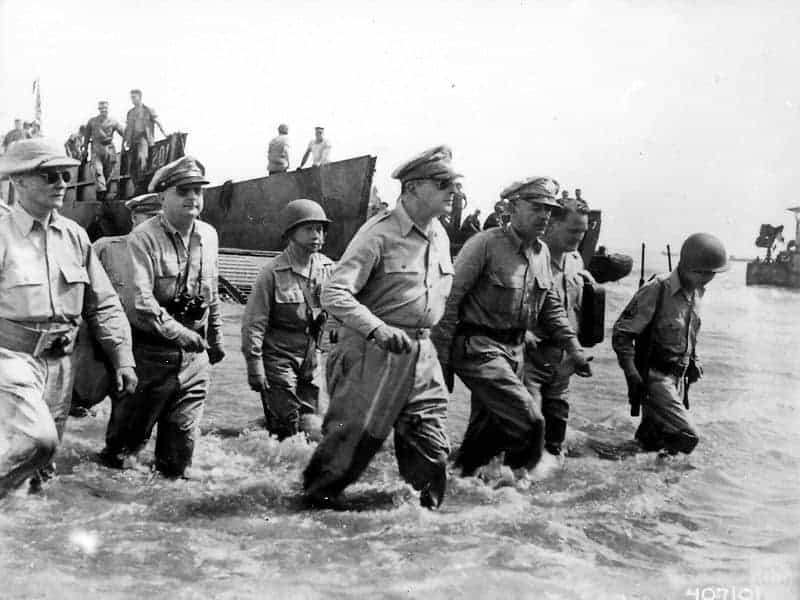Few soldiers in American history are as controversial as Douglas MacArthur. Throughout his military career, he exhibited a tendency to flaunt the orders of his superiors. During the Veracruz expedition, he led a party which acted heroically when attacked, and he was recommended for the Medal of Honor. The investigative board declined to award him the medal since his exploits had been achieved while on an unauthorized mission. During World War One, he was nominated for the medal again, and again the award was denied by the investigating board. Following the war, he led the attack against American veterans demanding their pensions in the Bonus Army incident.

Although President Hoover ordered him merely to surround the encamped veterans to contain them, he elected to advance his troops against them. The action led to multiple deaths and had a disastrous effect on public support. During the Second World War, he was caught by surprise when the Japanese invaded the Philippines, although he had more than six years to prepare the islands for their defense, serving as Field Marshal of the Philippine Army. He emerged from World War II as a national hero, having received the surrender of the Japanese in Tokyo Bay. His supervision of the reconstruction of the Japanese homelands and government was interrupted by the Korean War, and yet more controversy. Here is just some of the story of Douglas MacArthur.
1. MacArthur was born into a military family in 1880

Douglas MacArthur was born on January 26, 1880, the third of three sons. Two of his uncles on his mother’s side of the family fought for the Confederacy in the American Civil War; his father fought on the Union side and received the Medal of Honor for his actions during the war. Like his father before him, Douglas attended the United States Military Academy at West Point, graduating first in his class of 93 cadets in 1903. It was a long tradition at the academy for the top-ranked cadets to enter the prestigious Corps of Engineers upon graduation and commissioning. Douglas followed suit. During his time at the academy his mother, known as Pinky, lived in a nearby hotel.
MacArthur was, as were most cadets in their first two years at the academy, subjected to hazing. His mother living close by was one reason, another was his father’s service in the Union Army. In 1901 a Congressional investigation into hazing at the academy was conducted, and MacArthur was called to testify. His testimony described acts of hazing he had witnessed, but he put little emphasis on that to which he was subjected. Despite Congressional action banning most forms of hazing in 1902, MacArthur found it still practiced when he returned to the academy as its Superintendent in 1919, and in fact, learned it was far more vicious than it had been when he was a cadet.

